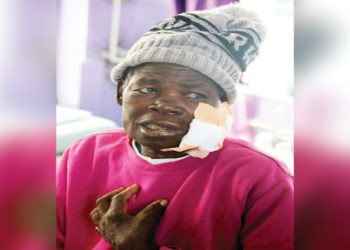A 13-year-old boy has initiated legal proceedings against his parents, claiming they “brut@lly” sent him to a boarding school abroad and subsequently “abandoned” him there.
The boy, who remains unnamed, contacted the British Consulate and a child welfare organization after his parents enrolled him in a school in Africa and returned to the UK without him.
According to the boy’s legal representatives, his parents took this drastic action due to concerns about his alleged involvement with gangs in London, a claim the teenager emphatically denies.
At a court hearing that commenced on Tuesday, his lawyers urged a judge to order the boy’s return to the UK, where he has lived since birth.
Attorneys representing the boy’s father argued that he should remain in Africa, asserting that the decision to relocate him was a legitimate exercise of parental responsibility.
Deirdre Fottrell KC, speaking for the boy, emphasized that the parents’ decision stemmed from an unfounded belief that removing him from the country was the only way to address a supposed risk.
Fottrell stated, “The extreme measures that this young boy, not yet 14, has taken to rectify his dire situation are striking. There is substantial evidence that he is suffering emotionally, psychologically, and potentially physically in the environment he has been placed in.”
She further expressed disbelief at the parents’ decision to leave their son in such challenging conditions, adding that returning home would not subject him to the severe dangers his parents feared, based on misconceptions about gang involvement.
The boy firmly asserts he is not part of any gang.
The court described the boy as “very polite and articulate,” with passions for football and cooking.
Fottrell explained that he was sent abroad by his parents without prior consultation, taken away with minimal belongings under the guise of visiting a sick relative, only for them to leave him behind.
ALSO READ: Man who lived as a goat explains why and says it was a ‘special kind of time’
Fottrell called this act a “stark and quite brutal” move, highlighting the boy’s reports of inadequate food, education, and mistreatment.
She noted that he is “patently extremely unhappy” in Africa, expressing feelings of humiliation and frustration, especially when teased by peers in the UK about being “deported.”
Furthermore, Fottrell revealed that the boy’s mother had admitted to physically chastising him during their time in the UK. While acknowledging that the boy’s behavior is not perfect, she highlighted his emotional turmoil, confusion, and distress.
During the proceedings, Mr. Justice Hayden pointed out the “incredibly restrictive” measures the boy faced while in the UK, including tracking his location through his phone, which he suggested would be intolerable for most adolescents.
In contrast, Rebecca Foulkes, representing the boy’s father, referred to reports from social workers indicating difficulties in managing the boy’s behavior before his relocation. Concerns included his tardiness to class, staying out late, and suspicions regarding potential criminal activities, such as wearing expensive clothing and possessing multiple phones.
Foulkes explained that these issues prompted the parents to be genuinely worried about their son’s associations and behavior. In addition, she mentioned that the boy had shown signs of vulnerability to grooming, had been accused of theft, and had troubling images on his phone, including photographs of knives.
From the father’s perspective, there was a perceived decline in the boy’s behavior toward criminality, with little acknowledgment from him of the risks involved. Foulkes argued that high-quality care and education were accessible in Africa, where the dangers present in the UK were not an issue, insisting that the boy had great potential that could be wasted if he returned.
The court was urged to respect the parents’ decision, as they believed it served their son’s best interests, even if it contradicted his own wishes. The hearing before Mr. Justice Hayden is set to be continued at a later date.












